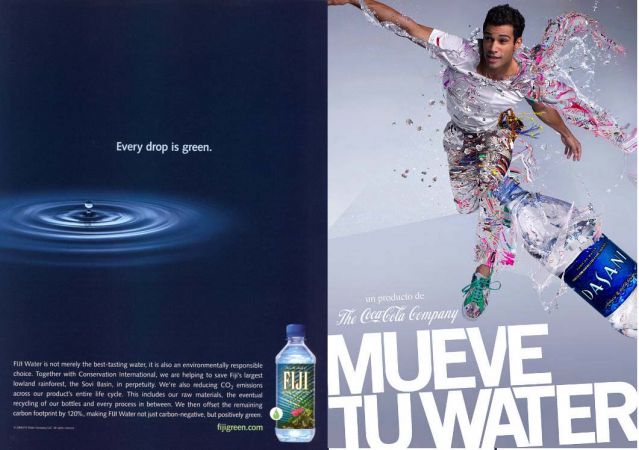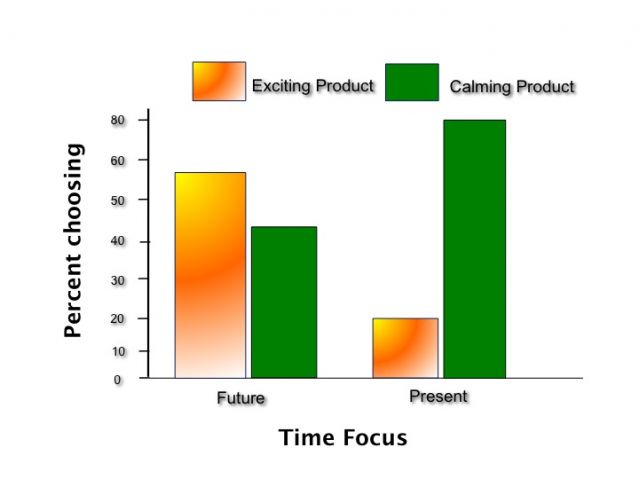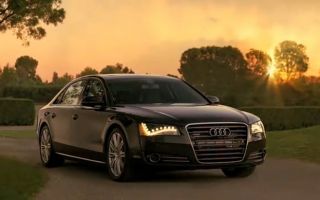Happiness
Buy Here Now: Zen and the Art of Marketing
Whether products bring happiness depends on how you define happy.
Posted September 14, 2012
Take a glance at these two advertisements for bottled water, and ask yourself:
1. Which one makes you feel happier?
2. Which one would more inspire you to lay out $1.99 for a bottle of water?

A recently published series of studies suggests that your answers may depend on how you define happiness. Six studies reported in the Journal of Consumer Research suggest that: If you are someone who focuses on the future, you’re likely to define happiness as excitement, and to choose products that promise novelty and buzz. If, on the other hand, you are someone who focuses on the present, you are likely to define happiness as being calm, and to choose products that promise relaxation and balance.
In one of their experiments, the research team (headed up by Cassie Mogilner of Penn’s Wharton School) had some people focus on the future, by unscrambling sentences such as “matters future the.” Other people focused on the present by unscrambling sentences such as “matters present the.” After being primed to think about the present or the future, participants were shown two different versions of the same ad for bottled water: One showed a drop of water on a soothing green background with the words “Pure Calm,” the other showed the same drop of water in bright orange with the words “Pure Excitement.” As shown in the figure, those who had been contemplating the present preferred the calming product, those who had been thinking about the future preferred the exciting version.

What determines how you define happiness in the first place? The answer depends partly on how old you are. Consider two more ads -- for luxury automobiles.


Which one of the ads is likely to appeal to a young and ambitious person, and which is likely to appeal to an older grandparental type. The researchers found that older folks were more likely to define happiness in terms of calmness, to focus on the present, and to prefer more laid back zen-style ads and the products they advertised. Younger people were more likely to define happiness in terms of excitement and novelty, to focus on future possibilities rather than the here and now, and to prefer more exciting ads and products.
Earlier research linked the different definitions to cultural background. European American students define happiness more in terms of high arousal positive feelings, whereas Hong Kong Chinese students think of happiness in terms of peaceful and serene feelings. If we put those various sets of findings together that must mean that as we jumpy Euro-types grow older, we move closer and closer to a calm and peaceful Eastern Zen consciousness, and that the first step toward enlightment is signaled by a change in your taste in bottled water advertisements.
Douglas Kenrick is author of Sex, Murder, and the Meaning of Life: A psychologist investigates how evolution, cognition, and complexity, are revolutionizing our view of human nature. He tends to drink water from the kitchen tap, but to do so more calmly and serenely with each passing year.
Related blogs
How a passing mood can profoundly affect your economic decisions.
Deep Rationality II: Conspicuous consumption as a mating strategy.
How to spend your way to happiness.
References
Mogilner, C., Aaker, J., & Kamvar, S.D. (2012). How happiness affects choice. Journal of Consumer Research, 39, 429-443.
Tsai, J., Knutson, B., & Fung, H. (2006). Cultural variation in affect valuation. Journal of Personality & Social Psychology, 90, 288–307


